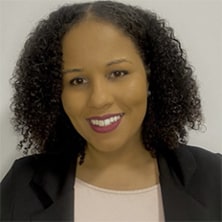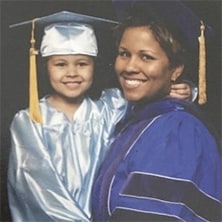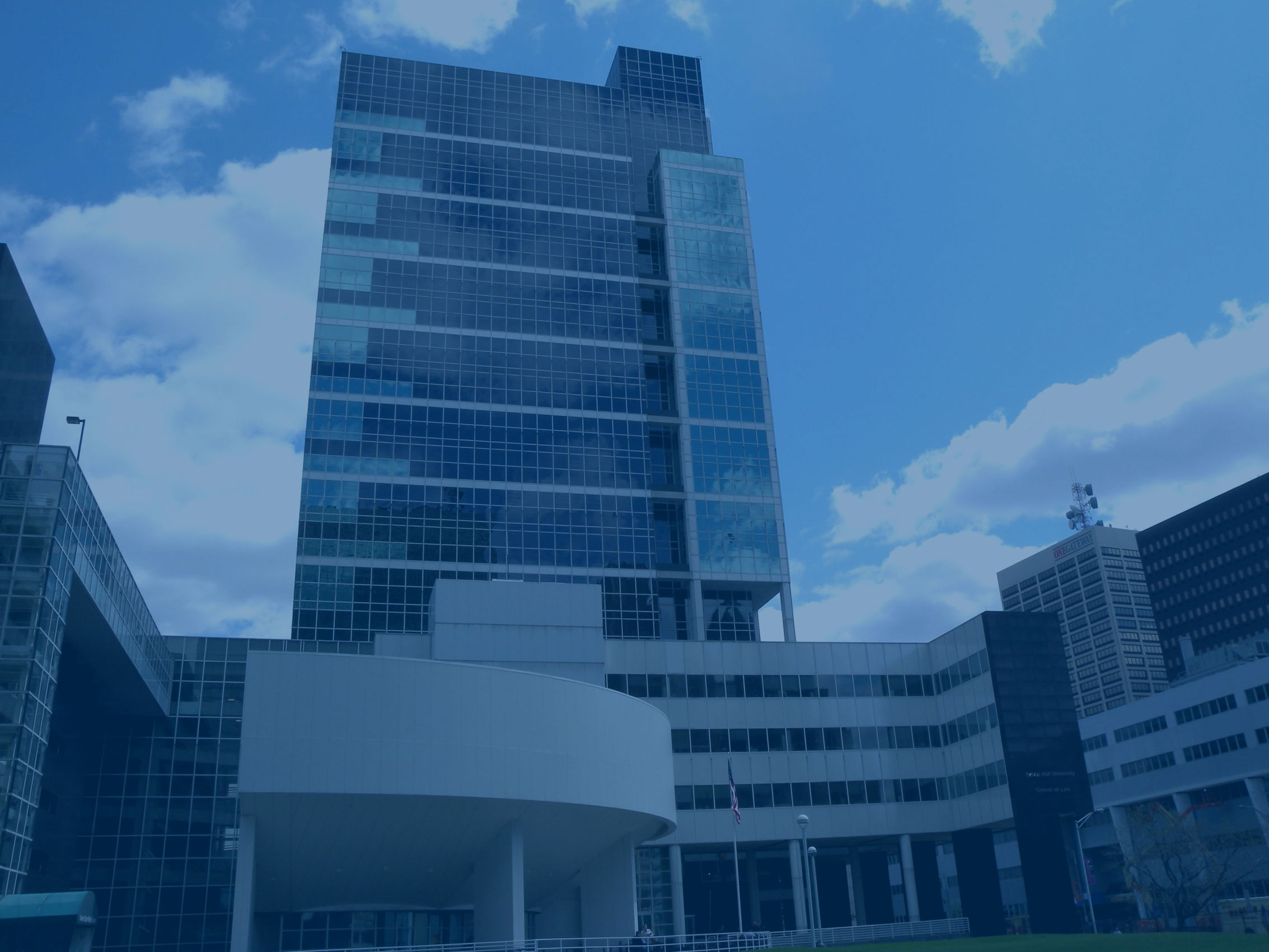Lissette Diaz ‘07
Managing Attorney, The Waterfront Project, Inc.

Why Seton Hall Law?
I wanted to shape a career working with immigrant children. I am the child of Cuban exiles and grew up in Hudson County, where there is a very large immigrant community. I often felt that immigrant communities were not properly represented, respected, or treated as whole persons. I felt a responsibility, as the first generation in my family to be born in this country, to go as far as possible in my education and in my career. It was important to me that I honor the sacrifices my parents and grandparents made in coming here. It was important to me to make them proud.
Growing up, my father would always tell me that I should be a lawyer, but I had no interest in it. It wasn't until I took a criminal law class in college that I fell in love with the law. I saw how lawyers can really help people and help shape society. I wanted to be a part of that.
After receiving my BA in Justice Studies with a concentration in Child Advocacy from Montclair University, I was fortunate to be invited by Seton Hall Law to be part of the inaugural Public Interest Distinguished Scholars program. It granted me a full scholarship and the chance to be part of this brand new experience pursuing a career in the public interest. I didn't know of any other law school that was doing anything like that at the time. It was an amazing opportunity.
What is the Waterfront Project (WFP)?
The Waterfront Project was started in 2013 in Hoboken, NJ by a fellow Seton Hall Law
alumnus Msgr. Bob Meyer, B.A. '84, J.D. ‘00. Fr. Bob saw the need within the community at the time and put hope in action by
starting The Waterfront Project.
The Waterfront Project is a nonprofit legal organization that serves Hudson County residents in various legal matters. Our housing program has recently expanded into Bergen and Union counties, as well. WFP's Survivor Project, which I manage, represents survivors of sexual assault and violence in civil matters.
Originally, WFP represented clients in several areas of law, but over the years it developed into a specialized landlord-tenant and housing law practice. The attorneys and staff do amazing work for our clients. The goal of preventing homelessness also helps to keep families together, helps people keep their jobs, and maintain their dignity. WFP believes in a holistic approach to legal work.
Last year, we were granted a very generous amount to start The Survivor Project within WFP. It is a legal project for survivors of sexual assault, wherein we provide representation and advocacy for survivors. This may mean representation in seeking a restraining order, advocating for accommodations at work, advocacy within the criminal courts, or an array of other possibilities. I am thankful and excited to be leading this new project.
What was your path to WFP?
After graduation, I joined the Housing and Income Maintenance Unit at Essex-Newark
Legal Services (ENLS). I was fortunate to have that job as my first legal experience,
especially because the executive director there, Felipe Chavana, became a mentor.
He is a fighter and taught me to really believe in the work I was doing and the change
I could make in the lives of my clients.
When I left ENLS, I made a point of experiencing different areas of law and different ways to be a lawyer. I owned my own law firm for five years, worked as a tenant advocate and public defender, and worked at a private law firm handling mostly workers compensation cases. An attorney can still help people even working in private practice.
In 2019, I returned to Legal Services, where I mostly represented survivors of domestic violence. From there, I went to Urban Justice Center in NYC, where I represented tenants in anti-eviction proceedings. I returned to New Jersey when the opportunity arose to lead The Survivor Project at WFP.
Survivors of sexual assault are often doubted, ignored, even ridiculed. Developing The Survivor Project fully fits with WFP's culture of meeting the community where they need us most. Survivors of sexual violence should not have to fight their way through the legal system alone. With this new project, they won't have to.
What is the Projects most urgent needs?
Funding is always important for us to continue to do the work that we do. Our annual
Justice for All fundraiser is coming up on November 10, 2022. The more money we raise, the more we
can ensure exactly that - Justice for All. Success is measured in WFP raising $200K, and also raising awareness of the services
we provide. We hope to raise friends and funds at the annual gala on November 10,
2022.
What inspires the work you do?
My greatest passion has always been standing up for what is right, fighting for the
“underdog.” Growing up, I saw that spirit in my parents and grandparents. I was expected
to do the right thing, even if I was the only one. The stories about what my family
went through put into perspective how blessed I was, and I am able to shape an entire
career out of those blessings.
What has been the most challenging part?
Latinx attorneys comprise about 4 percent of U.S. lawyers. Latinas account for less
than 2 percent. You can imagine what a smaller percentage is Afro-Latinas. It is common
for me to walk into a courtroom and no one else looks like me. It is common for the
judge or court staff to ask me where my lawyer is because they assume I am not an
attorney, even if I am in a suit and carrying files. Racism and sexism are prevalent
in this profession. It can be disheartening.
What advice would you give to law students interested in public interest law?
I would advise students who want to work in public interest to try different areas
of law. Try things you may not think you'll like. I had no interest in criminal defense
work until I became a municipal public defender, and then criminal defense work became
my favorite area of law. Working in different areas will teach you different skills.
I would also advise them to do their own research about whether a public interest salary is feasible for them. If it is not, that's okay, too. There are many ways to volunteer your time, such as doing pro bono work, without making it your entire career. You can still help people and make a big difference.
Looking back, how did your Seton Hall Law experience prepare you to serve in the prominent
positions you have held?
I remember on my first day of orientation in 2004, Professor Franzese gave a speech
with the ultimate message that we were all exactly where we needed to be in that moment.
That is the energy I have carried throughout my entire career. I am exactly where
God wants me to be at any given moment. I have approached every opportunity - from
staff attorney to managing attorney - with the belief that I have something to offer
that is unique and God-given. There have been mistakes along the way, but there have
many, many more amazing experiences.
There were experiences that I had at Seton Hall Law that really contributed to preparing me. I worked as a research assistant for Professor Nessel in the Immigration Clinic my second and third years. I researched interesting and distinct issues in areas of law I otherwise would not have been exposed to. I also worked as an interpreter for clients in the clinics. It was rewarding to help clients so directly by interpreting for them and ensuring that their voices were heard.
I received fellowships for the summers after my first and second years to do internships at American Friends Service Committee and Urban Justice Center. The internships were wonderful experiences where I learned a great deal about how to practice law and help clients.
 Why do you feel it is important to give back to Seton Hall Law?
Why do you feel it is important to give back to Seton Hall Law?
Lawyers are often in positions of great responsibility in our society. Thus, law schools
are in a position to educate and shape the minds of future leaders in a unique way.
Seton Hall Law has shown a commitment to public service, and it is important for me
to be a part of that.
I am most passionate about giving back to students who may be in positions similar to mine while in law school. I was a single mother of a toddler at the time and did not have the luxury of taking a clinic class because I needed to work. There were many clubs I wanted to join, but I had to choose only one or two because I needed to be home with my daughter. As a Latina, I was in the minority in law school. Many students find themselves in positions where they question whether they even belong in law school. It is important to me that I can tell them, Yes, you belong!
Seton Hall Law alumni can update your information and share your Seton Hall Law story here.
For more information on supporting students at Seton Hall Law contact the Office of Alumni and Development at 973-642-8711 or [email protected]. To make a gift now, visit law.shu.edu/makeagift.

